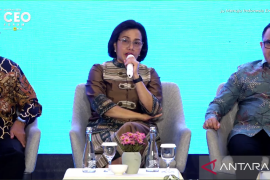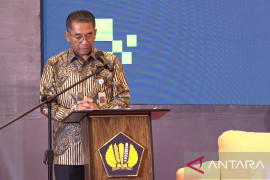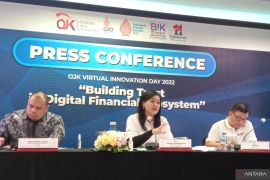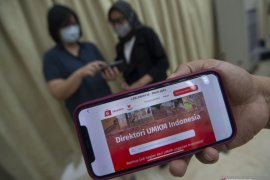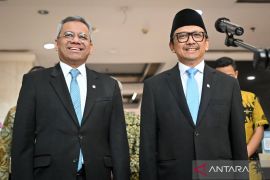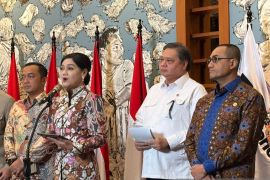Bank Indonesia has continued to push digitalization of retail payment systems through the use of QRIS (Quick Response Code Indonesian Standard).Jakarta (ANTARA) - Bank Indonesia (BI) has continued to encourage digital finance development, which it considers one of the transformation pillars of the national economic structure, Bank Indonesia Deputy Governor Rosmaya Hadi has said.
The central bank's commitment to continue to support digital economic and financial integration is being realized through the Indonesian Payment System Blueprint for 2025, Hadi informed at the JaKreatif Fest (Jakarta Creative Festival) 2021 here on Monday.
"Through this blueprint, it is expected that an integrated digital payment ecosystem will be established," the deputy governor said.
The interoperability, access expansion, and multi-instruments that will emerge through the blueprint will make transactions convenient for the public, she explained.
The blueprint envisages basic infrastructure for new economic sources that optimize digital processes, she added.
"It will also increase national efficiency and economic growth, and eventually financial inclusion," Hadi continued.
Related news: Digital transformation drives Indonesia's economy: Indrawati
Furthermore, Bank Indonesia has launched the National Standard Open API Payment (SNAP), Hadi said.
SNAP has been created to build a healthy, competitive, and innovative payment system industry, so as to facilitate efficient, secure, and reliable payment services to the public, she explained.
The existence of SNAP will unite, integrate, and connect various payment system steps and services that are performed for the advancement of the Indonesian economy, Hadi informed.
"Bank Indonesia has continued to push digitalization of retail payment systems through the use of QRIS (Quick Response Code Indonesian Standard)," she noted.
According to Hadi, the current number of QRIS user accounts is close to 9 million, dominated by micro, small, and medium enterprises (MSMEs).
"In 2021, BI targets that the use of QRIS will reach 12 million merchants," the deputy governor said.
Meanwhile, BI Governor Perry Warjiyo has said he is optimistic the Central Bank Digital Currency (CBDC), or digital rupiah, will be able to increase national economic efficiency.
"We will circulate the digital rupiah through digital blockchain technology and distributed ledger technology (DLT) so it will really be efficient," Warjiyo said earlier while announcing the outcome of the monthly meeting of the central bank’s board of governors here.
Banks connected to the DLT system, in the context of digital rupiah wholesale, will also feel the efficiency while making transactions in the money market since they will not incur a transaction fee, he added.
The digital rupiah will also make retail trade efficient since it would lower transaction costs, Warjiyo said.
Related news: Finance Minister sheds light on digital transformation policy
Related news: Finance minister lauds digital tax payment feature
Translator: Fathur R, Kenzu T
Editor: Suharto
Copyright © ANTARA 2021





